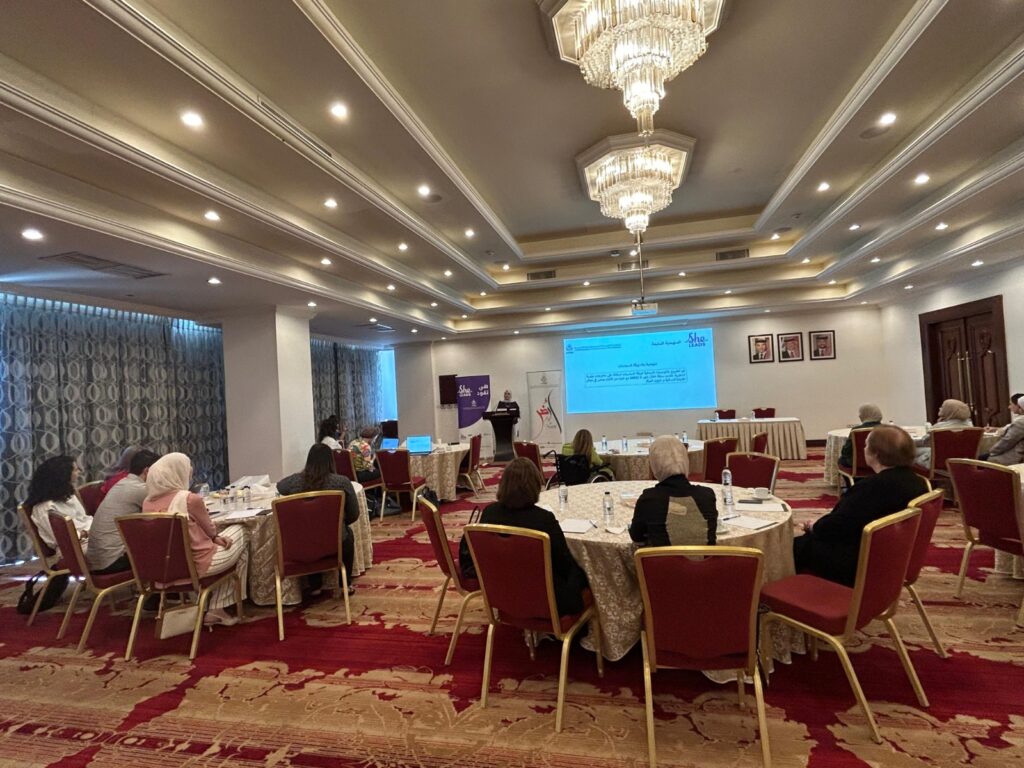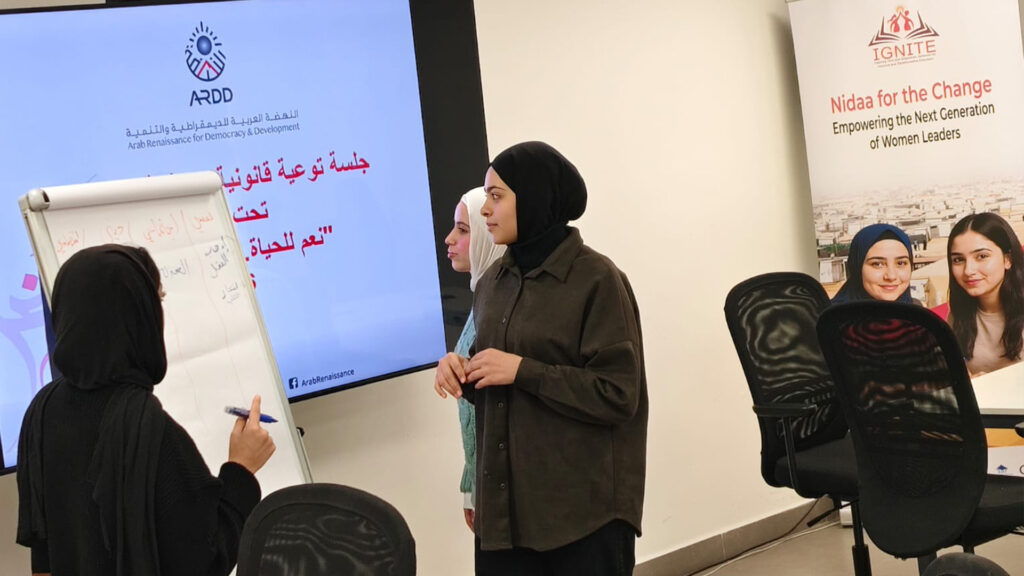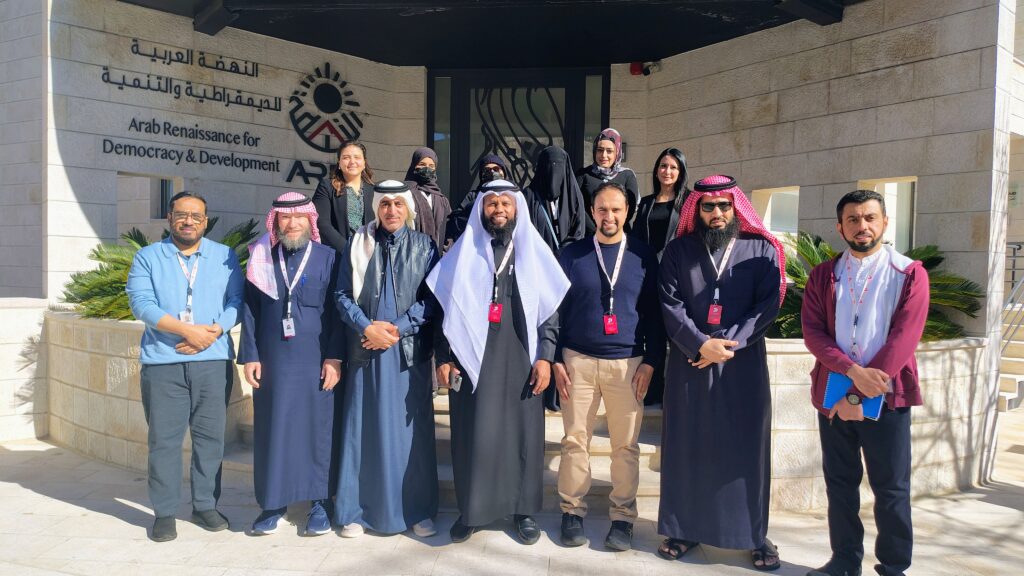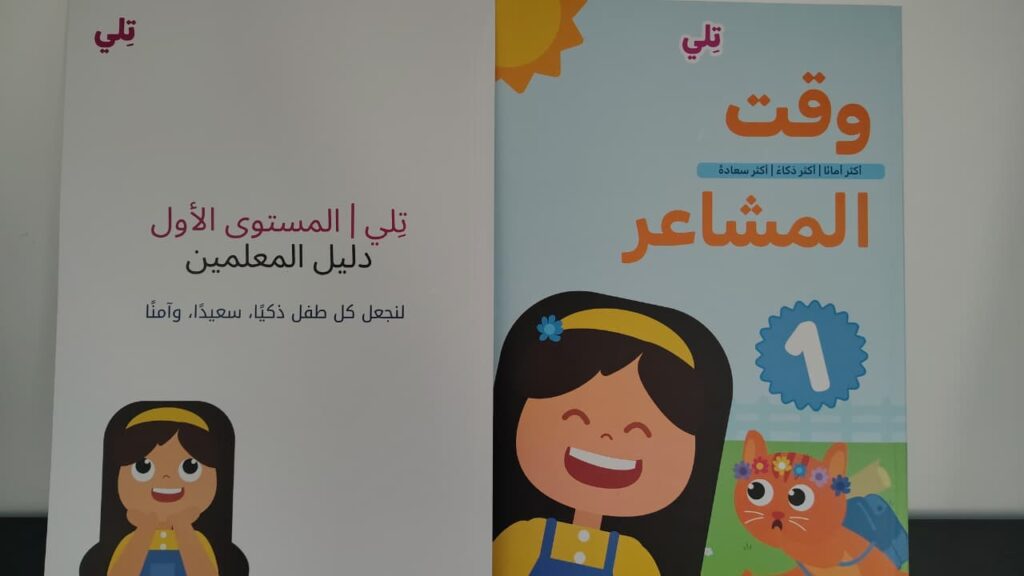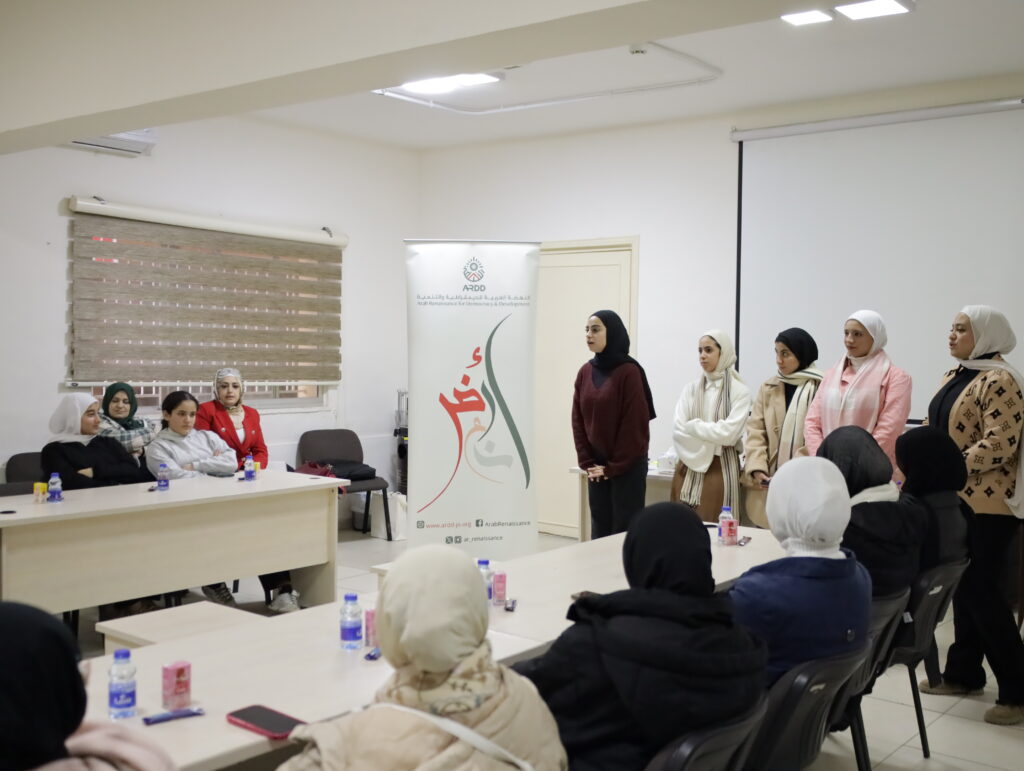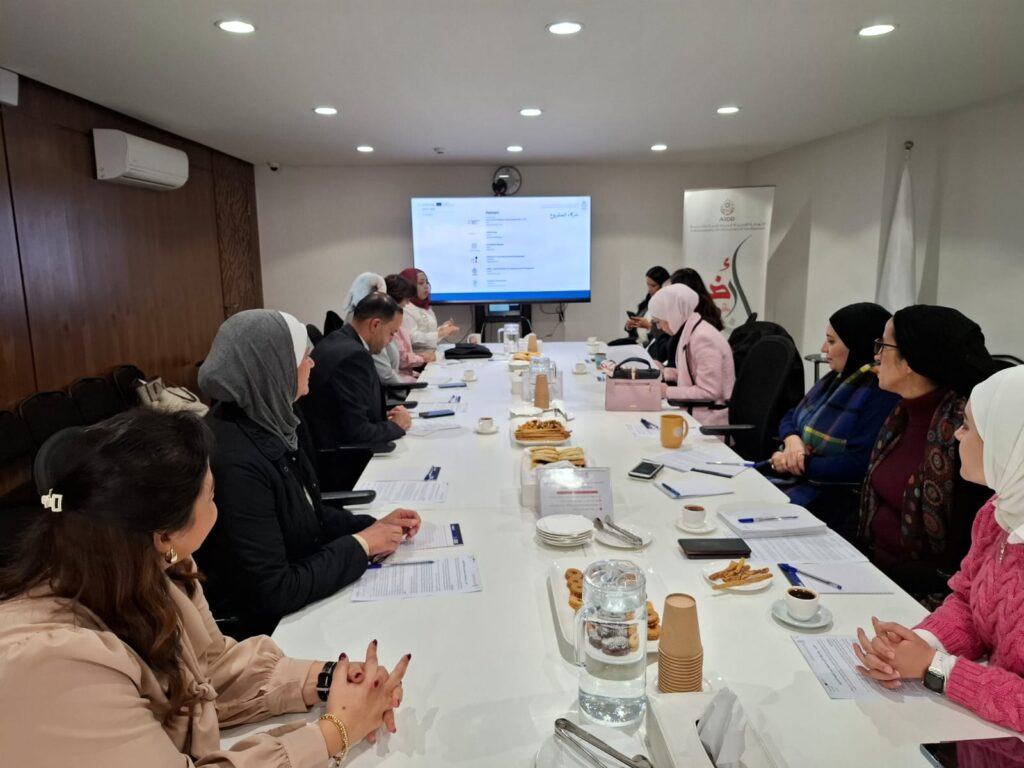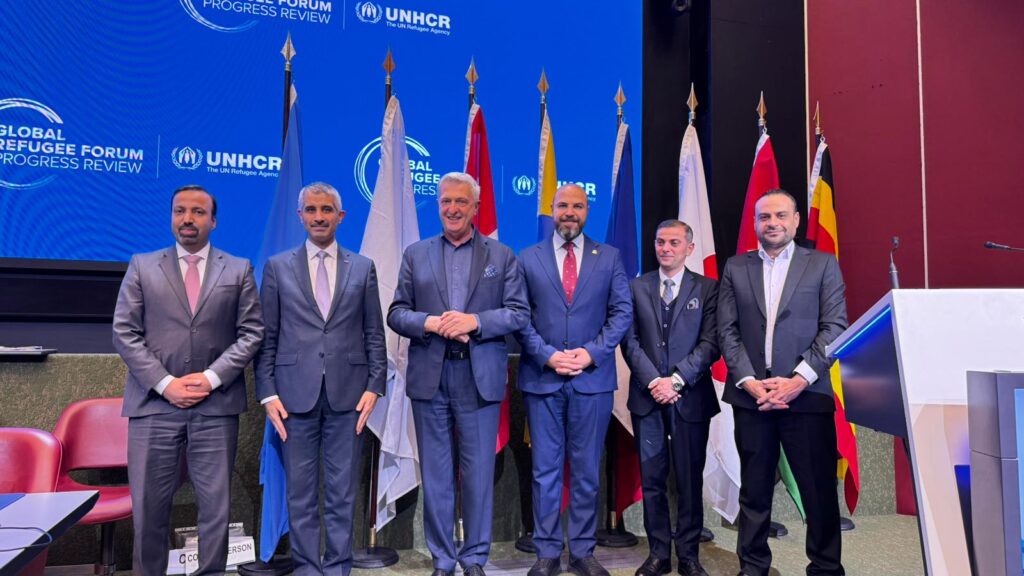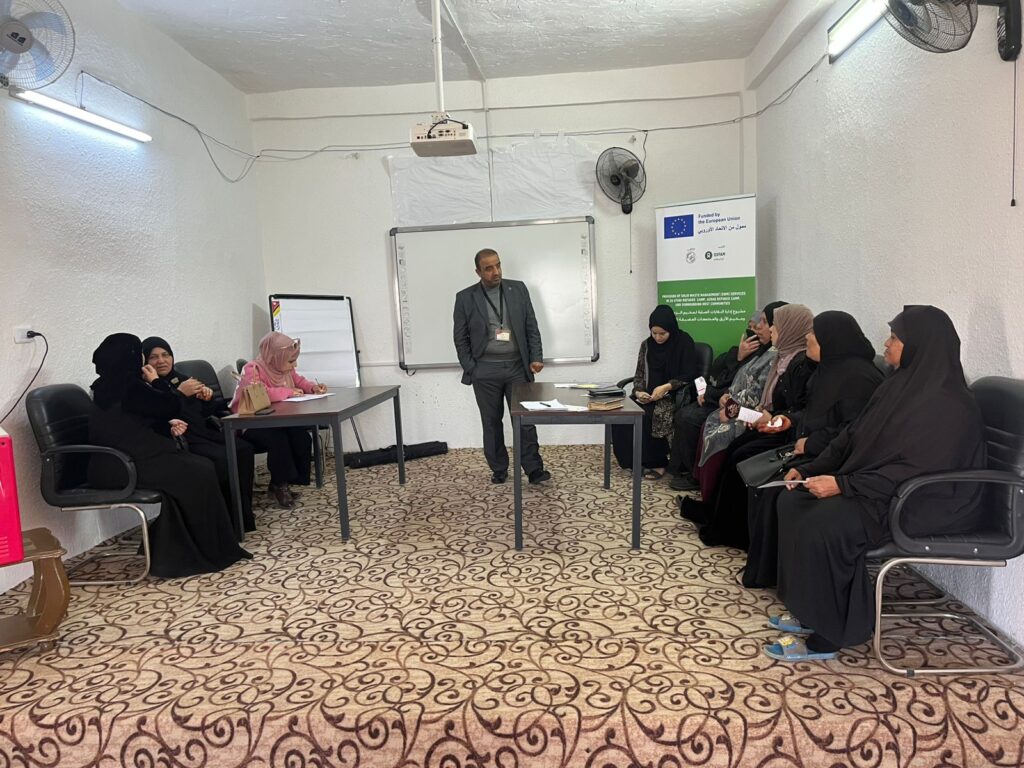As part of the “She Leads” program, the Arab Renaissance for Democracy and Development (ARDD) organized two dialogue sessions in Jordan and Egypt to explore the role of men within families in supporting young women’s leadership. The sessions aimed to develop recommendations grounded in real-world challenges facing women, with active participation from young female leaders and regional experts on women’s leadership. The goal is to produce a detailed policy brief and research paper on this topic.
During the sessions, held on June 18 and 24, 2025, with regional experts on women’s leadership in Egypt and Jordan, Lina Husseh, Project Manager of She Leads, highlighted the importance of addressing decision-makers through policy papers and research to secure their support. She stressed the need to strengthen communities and the legislative environment by planning and implementing programs that increase meaningful participation opportunities for young women and girls.
Meanwhile, Malak Suleiman, Projects Manager at ARDD, presented a draft policy brief in progress. The brief includes recommendations to activate the role of young men and boys within families to help cultivate young female leaders. She shed light on how political, cultural, economic, and technological shifts affect patterns of support for women within families, and how these shifts impact women’s broader societal presence. Suleiman also emphasized the importance of working within a systematic and integrated framework to enhance institutional and individual efforts to create an enabling environment that supports young women in reaching leadership positions.
Participants in both sessions noted that despite ongoing efforts to strengthen women’s roles in leadership and decision-making, these efforts have not yet reached the desired level across various sectors and communities. This gap is particularly evident in some regions of Egypt.
They agreed that societal constraints continue to limit women’s effective participation, and there remains a lack of genuine representation of women in decision-making positions, despite the presence of successful female role models who need greater visibility and institutional support. Participants also discussed the necessity of integrating girls with disabilities into education and enhancing their civic and political engagement.
The discussions underscored the importance of designing well-structured local initiatives within educational contexts, incorporating leadership skills and principles of gender justice from an early age, and providing appropriate psychological and social training for girls during decision-making stages at the family level. Participants also stressed the need for sustainable programs to train parents on supportive parenting methods.
At the institutional level, participants recommended enhancing young women’s leadership by providing tangible opportunities in the public and humanitarian sectors, focusing on establishing a more supportive and inclusive organizational culture, especially regarding women’s leadership.
They highlighted the need to adopt clear social, economic, and political standards that promote women’s participation in leadership and decision-making positions. Participants also called for a reexamination of youth studies to ensure they more accurately reflect the complex and evolving realities faced by girls and young female leaders.
In conclusion, participants emphasized the importance of effectively adopting the recommendations in both the Jordanian and Egyptian contexts to ensure their transformation into actionable national policies, while respecting cultural and historical specificities. They stressed the need to raise men’s awareness of their roles, build trust between local community institutions and families, and enhance the role of media and social media as powerful tools for raising awareness—particularly among men—by presenting recommendations backed by data, statistics, and real-life examples.
They agreed that meaningful change begins with recognizing existing gaps in program design and implementation and the need for cooperation across all sectors to adopt new, more realistic, and comprehensive approaches that reflect the needs of women and girls, fostering real transformation in the culture of leadership in both Jordanian and Egyptian societies.
It is worth noting that the “She Leads” program aims to promote equitable representation of men and women in decision-making processes through capacity-building activities focused on expanding girls’ and women’s access to education, skills development, political engagement, advocacy, purposeful interaction, and awareness-raising, all through a collaborative and inclusive approach at both regional and international levels.

